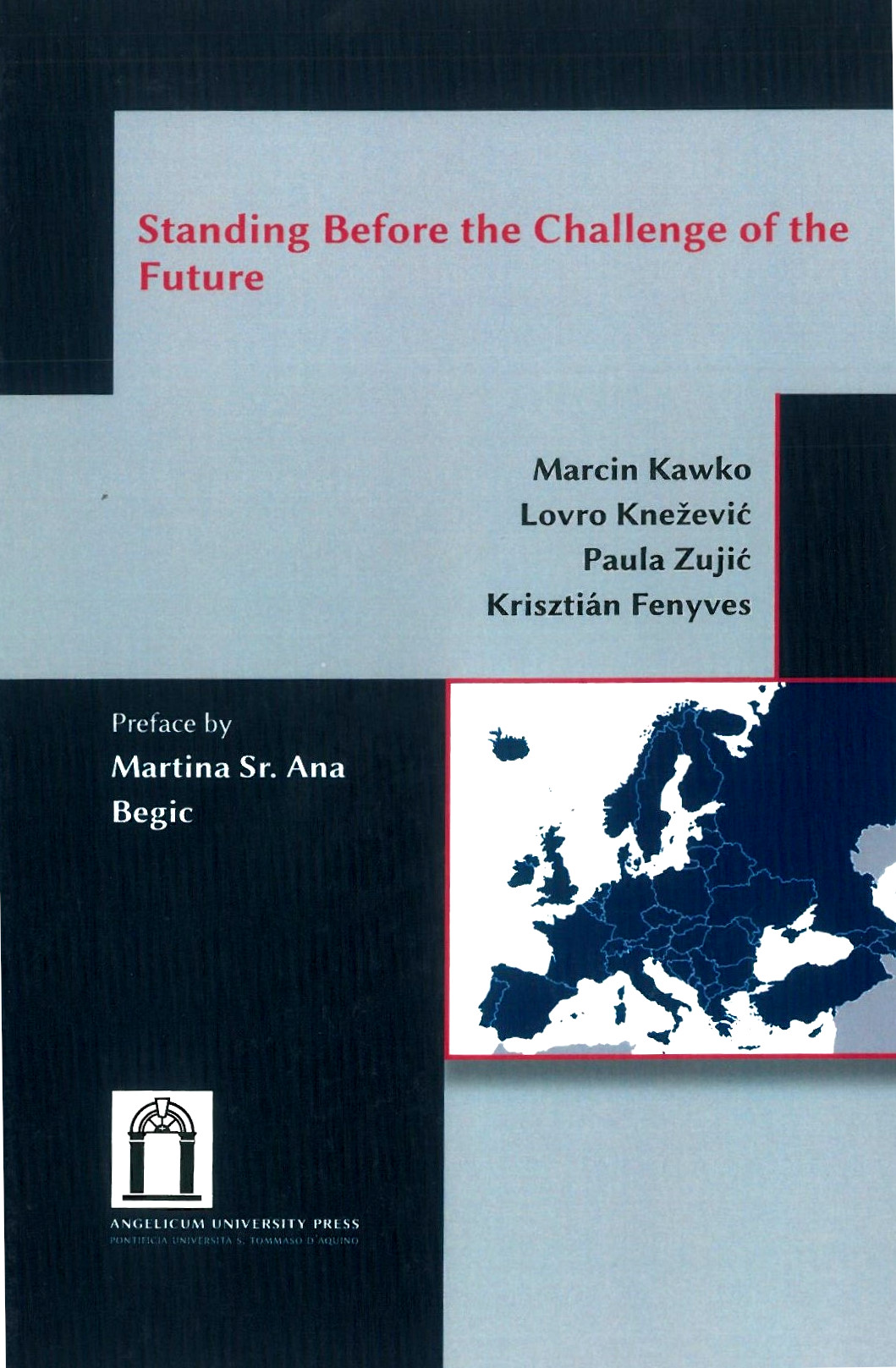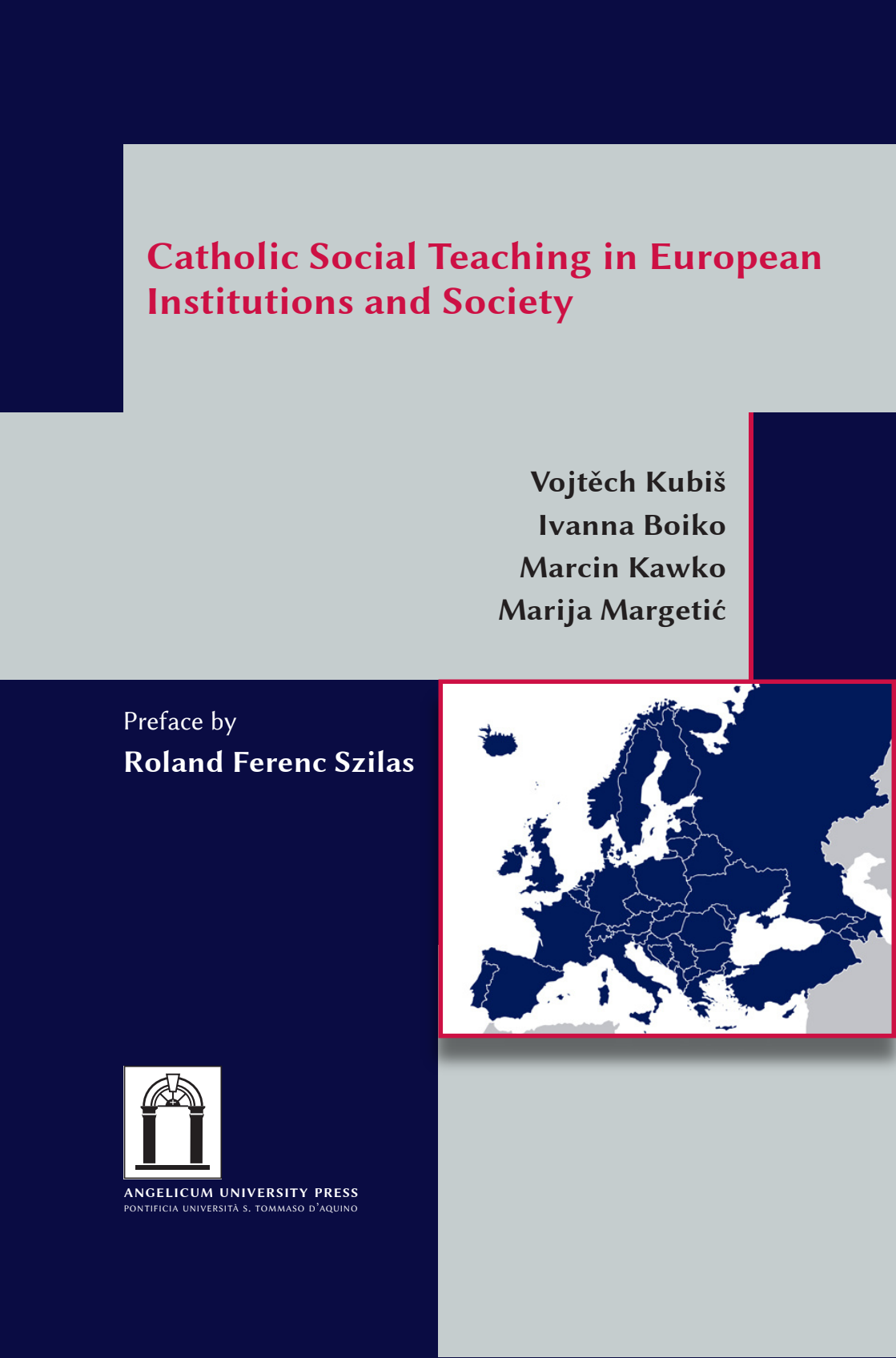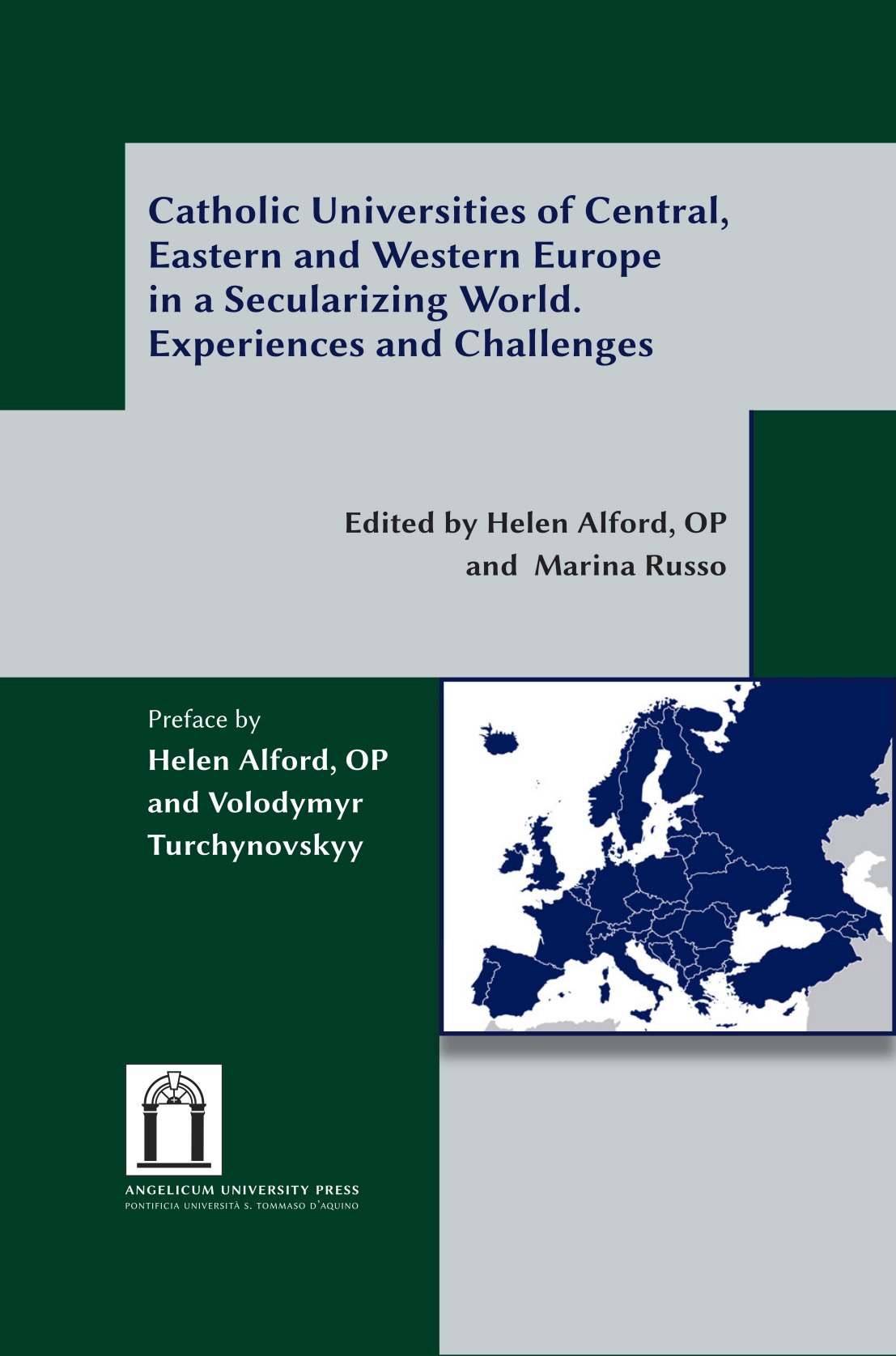Leuven University Press,
Bibliotheca Ephemeridum Theologicarum Lovaniensium CLVII, 2000, 307pp + xxi
In 1997, the Lateran University in Rome held an international conference on Catholic social teaching. Not surprisingly for anyone who knows the Lateran, the program focused almost exclusively on a consideration of the development of papal encyclicals, to the exclusion of the various other forms and activities that are more or less closely associated with the idea and practice of the Church’s social teaching. Finding such an approach unacceptable, the editors of this book organised a meeting in Cambridge in 1999 under the title Whose Ethics? Which Priorities? Catholic Social Thought in Transition, of which this book is one of the results. This background undoubtedly explains the rather heavy-handed insistence on the role of "Catholic Non-Official Social Thinking" (CNOST), more often more generally referred to as "CathST" (Catholic Social Thought). Another acronym, "CST" is used for official social teaching, though sometimes it seems to have a wider definition (see its use on p. xv for instance). Despite these points of terminology, the book includes some worthwhile material and some excellent contributions. It follows a logical structure, moving from more general questions as to the nature of Catholic social thought through its interrelation with other disciplines and on to more practical applications and initiatives. The concluding article is an interesting reaction by John Coleman to the preceding papers (all of which are by Europeans), Coleman being one of the leading thinkers in the field of Catholic social thought in the US.
In the book’s introduction, the editors outline the main themes of the book. A "keynote" is that Catholic social thought is "more than encyclicals" with "cues" taken from the "long-standing but relatively neglected traditions of Catholic non-official social thinking" (pp.xiii – xiv). A list of names of thinkers and reference to a few types of organisations (Catholic trades unions, for instance) follows. The editors see the need for a "revival of CNOST", in other words, they imply that it has lost its dynamism compared to the (pre-Vatican II) past. Non-official thinking translates the "drive and inspiration" of official teaching into forms more appropriate in local areas and can be more experimental, probing and controversial, among Catholics as well as in the world in general. Accordingly, the contributions to the book "represent such exercises in CNOST", with a "marked orientation towards what may be called "middle level thinking", that is, thinking in the large and complex areas which lie between, on the one hand, broad values and principles and values [sic], and, on the other, concrete actions and decisions" (p.xv). According to the editors, no general approach emerges but some "mould-breaking proposals" are made. A further question addressed is the distinctiveness or not of Catholic social thought .
The first part of the book includes two articles on the way social teaching has developed in the last 100 years. Throughout the book, many of the articles include an element of autobiography as regards the way the author first encountered Catholic social thought, but the article by Calvez is entirely structured around his own development in the field, something quite interesting given his importance in the field. It is noteworthy that he, like many of the other contributors who talk about how they got involved in Catholic social thought, first came across non-official elements, only later to get involved in studying the encyclicals. Calvez charts his own development and that of CST in general. In particular, during the ‘60’s the challenge of liberation theology arose, which Calvez thinks was not addressed as well as it could have been. Having lost touch somewhat with these developments, thinkers then had to deal with the onslaught of the liberal economic agenda lead by Thatcher and Reagan. This was not the best time for Catholic social thought. With the arrival of John Paul II, we saw a Pope who is in many ways close to the liberation theologians in stressing the need for a radical return to Gospel values but distant from them in their theoretical use of Marxism. His Centesimus Annus is in no way a ringing endorsement of capitalism, and he let it be known that he was hurt that some educated commentators regarded it that way, but its agnosticism and ambivalence about the present system leaves many uncertain as to how far he thinks it needs to change. Calvez has subsequently become more absorbed by what Catholic social thought has not said or done, in other words, its gaps or "silences". He sees three main challenges that have so far been greeted with silence: political issues, such as the question of unemployment where the organisation of work is relying less and less on structures of employment; the question of financial systems and their impact on the social order; and the inequality built into modern capitalism (this last question is raised in Centesimus annus but not answered).
Staf Hellemans wants to ask if Catholic social teaching (the official sort seems to be primarily involved) has a future. He argues that by the time of Leo XIII and Rerum Novarum and before 1960, there existed a very particular form of Catholicism, ultramontane is the label he uses, which gave rise to movements and institutions in the social sphere that were in a symbiotic relationship with the church’s social teaching. Both supported each other, and in particular, the strong Catholic labour unions ensured that principles from the encyclicals had a direct impact on the working lives of their members. He argues that when this form of Catholicism entered a crisis in the 1960’s, it is not surprising that Catholic social teaching should also have been "seriously affected" (p.21). This coincided with big changes in the workplace which fundamentally changed the social question, or marginalised the way in which it had been seen before. Catholic social teaching responded by turning to new themes; new actors arose in its development (especially bishop’s conferences), and the wording and style of documents changed dramatically. Hellemans thus argues that it is mistaken to see much continuity between pre-1960 social teaching and what has transpired since, despite official attempts to maintain such continuity. He does not see this discontinuity spelling the end of social teaching, but still thinks that the changes that have been made leave social teaching more detached from the world than it was before.
Moving into the second part of the book, entitled "Sources and Structures", Frank McHugh opens it with a contribution on the role of natural law in social teaching. Although he criticises much of the way in which natural law thinking has been proposed since the neo-Thomist revival, he thinks rightly that to reject the idea of natural law because of this is to throw the baby out with the bath water. He discusses the idea of natural law as "transcendental equity" (p.52). He takes virtue theory as his main interlocutor, and, although he argues that many virtue theorists (though, notably, not Aquinas) rely too much on culturally and locally transmitted tradition to the exclusion of more universally accepted principles of human wellbeing, he too has enough sympathy with their more tradition-based accounts to want to reduce the idea of "natural" in natural law to a minimal level. This is even clearer when he suggests an alternative title for natural law, in order to detach it from the baggage of history that puts modern men and women off considering it seriously. "Common social wisdom" moves towards the idea of something defined by common points derived from the intersection of different traditions rather than the idea of anything "natural" in itself. Although McHugh’s idea is interesting and worth discussion, it would have been useful if he had also considered the drawbacks of such a change. To cut off the idea from the tradition of which it is a part by changing its name reduces the richness of its meaning, even if sometimes that meaning is no longer useful. It is striking that at the end of a discussion in which tradition plays such an important part, he should negate the role of tradition as regards the main term he has been discussing.
Johan Verstraeten is the only contributor who examines in a more systematic way the relationship between official and non-official teaching, citing the four categories of social thought proposed by Büchele: social pronouncements of popes, council and colleges of bishops; social pronouncements of local or regional churches represented by bishops’ conferences; scientific and academic discourse; "the interpretative level of groups which refer to CST in order to clarify their commitment and formulate socio-political statements and positions" (p.62). According to Büchele, the first two represent species of "official church social teaching" while the second two form part of the "tradition of its interpretation" (p.62). Still, Verstraeten is not happy with this typology, since it gives the impression that the two form two different universes, whereas in fact they are both part of the same tradition. Verstraeten then discusses what it means to think of Catholic social thought as "an historically embedded, socially embodied argument", using words from MacIntyre. Traditions are also living, and as such can have to overcome crises and can also experience periods of sterility, retreat and even breakdown. For traditions to deal with crises and competing traditions positively, and to be enriched and developed by them, they need to be able to express their "fundamental basic pre-suppositions" by means of a new "vision which gives relevance in a new context and historical situation" (p.69). In seeing Catholic social thought as a narrative tradition, Verstraeten wants to draw more on Ricoeur than MacIntyre, maintaining that narrative and poetry, primarily drawn from a "living relation" with the Bible, continue to be important throughout the development of the tradition, not only at its beginning. He thus argues that it would be "enlightening to examine how the traditional texts of Catholic social teaching not only function as rational texts about principles and theories, but also as texts referring to powerful, biblically-inspired root-metaphors which mould our pre-reflective understanding of social reality" (p.74). Such an examination could help us understand the influence of Catholic social teaching on the rise of social movements, where people are often galvanised by a vision based on images or metaphors as much as they are by rational arguments. In particular, an examination of the scandal of the Cross in the context of social teaching could lead to much challenging reflection and action.
Walter Lesch, in a paper that sits somewhat uneasily with the others, says in his opening paragraph that he wants to show that Christian social thought has "no privileged access to some arcane knowledge that could not be shared by other people" (p.79). He dismisses the idea of Catholic social thought, and only accepts Christian social ethics as a feasible project for today. Although the overall thrust of the paper is certainly not to be dismissed, he has many comments in it that seem quite weak and debatable and that are not backed up by evidence, such as the contention that "Whereas moral theology is more and more characterised by the separation between rational argumentation and religious motivation, social ethics . . . is getting more biblical and theological whether we like it or not" (p.84). A glance at any modern textbook on moral theology would show that, like all theological disciplines, it has seen a marked turn towards biblical sources since Vatican II. Overall, I would suggest that Lesch is making a category mistake in much of what he criticises. His own project is to try to meet secular thinkers on their own ground, where no-one has any special "arcane knowledge" that the others do not share, and to try to make Christian ethics credible on that plane. This seems to me a very necessary and entirely laudable project. It does not mean that those trying to promote a specifically Catholic project are mistaken, or that they are developing an irrelevant project. All it means is that they are doing something different. The Catholic church has always been big enough and broad enough to encompass both kinds of project (though the kind in which Lesch is involved has become much more "orthodox" and "official" than it was before Vatican II); it is not very useful for those involved in one project to needlessly attack those in another when both are essential to the progress of Catholic/Christian social thought in today’s society.
Boswell’s paper on "Solidarity, Justice and Power Sharing: Patterns and Policies" is interesting for a number of reasons. One of these is the idea that while Catholic social thought shares many ideas with other social traditions, it is distinctive not only in the particular content it gives to ideas like solidarity, subsidiarity and justice, but also, and perhaps especially, by the "pattern" that these ideas take up in relation to each other. His "policy thinking" towards the end as regards the ways in which the use of personal time is structured in society, the need for physical spaces and frameworks which promote social interaction (including a consideration of the private car) and the need for institutions for social interaction are all useful and would make good material for further discussion and research.
The third section of the book, "Engagement with Secular Debate" includes five articles, including two in French. The first of these, by Chantal Delsol, breathes quite a different atmosphere from the other articles in the book. For Delsol, the primary problem that Catholic social thought faces is the active prejudice against it in modern society, coupled with the loss of a common philosophical basis in which to express it (a common anthropology) and a distrust of anything that claims to teach, to form, to guide, in short, to contain "doctrine". Thus, instead of locating the problem for Catholic social thought primarily within the church as all the other authors do, Delsol locates it primarily in the active hostility of her interlocutors. When, in giving lectures on the early development of social legislation in France, she explains to students that the primary movers were Catholics rather than socialists, the French students she is teaching become suspicious of her, wonder if she is a religious fanatic and generally dismiss what she is saying. Delsol’s article usefully focusses the reader on another aspect of the problem for Catholic social thought in today’s society.
Julie Clague’s article on human rights is a good presentation of this important theme and the way it is treated by different thinkers within CathST. Aloys Buch focusses on the question of the communicability of CathST both within and without the Church. He proposes a number of new problems that are arising for the tradition which need to be faced if it is to remain credible: globalisation, financial operations and markets, sustainability, and ways of rising to these challenges through setting up "networks of competent exchanges" and "structured dialogue with relevant experts" (p.143), as well as incorporating practical expertise and social experience. Zamagni’s paper on humanising the economy is a useful summary of the situation of economic theory and practice as regards social thought, including recognition of the work of Antonio Genovesi, well before Adam Smith, on love for the public good as the main virtue necessary for a healthy economy. The ongoing development of what may be called "civil economics" represents a more fertile possibility for the interpenetration of economic and Catholic social thought. Bernard Perret in the second of the French submissions asks whether economic wealth has become the modern equivalent of the common good. It seems to share some of the characteristics of the old idea of the common good, in that it is something created in common (if we are thinking of GNP) and which allows each person to pursue his or her development. At the same time, however it is very different in the sense that it has not been explicitly treated as such in political thought and because, in societies with economic abundance, the problems people face can on longer be addressed with further economic growth nor even more equitable distribution but are questions to do with culture, ecology, bioethics or society in general. Such questions, even in a pluralistic setting, inevitably lead us back to a consideration of the common good, even if the phrase itself is seldom used. For instance, the use of human development indicators as better indications of the health of an economy than GNP is widely accepted, but such indicators are also contradictory in the sense that it is impossible to aggregate all the different dimensions of human development into one figure. Only an economistic mindset could do that. To oppose such economism, the heterogeneity of human goods needs to be upheld. In this sense, the idea of "social capital" is more promising; it is not surprising that modern economic systems so not seem to be building up social capital (and hence are not durable in this sense), but if anything seem to undermine it. Perret maintains that there is an evident affinity between the notion of social capital and the common good, and the former clearly could include a religious aspect.
The fourth section of the book, Praxis and Policies, contains articles on an Irish post-conciliar aid agency and the way in which it relates to social teaching, a discussion of the results of a survey of French Catholic institutions in the health sector and how they treat the question of Catholic identity, three articles on finance and business and a final rather interesting one on the "option for the poor" taken in recent social teaching and thought. Of the five articles I found the one by Beretta the best argued and the most original, while Gerwen’s is good in the latter part. Bruni’s article presents the development of the idea of the "economy of communion" that has developed into quite an extensive movement within the Focolare lay organisation. Here we can see a real example of praxis and thought developing together, in the usual sequence: thought and rationalisation follow mute practice. Dorr shows how the "option for the poor", which is at the "idealistic" as opposed to "practical" end of the spectrum of CathST, is in some ways inspired by CathST’s dialogue with Marxism but is quite different in its content from Marxist thought: "To opt for the poor is not to make a carefully calculated political gamble but to throw oneself on the mercy of God. . . . It is a decision to find joy and fulfilment in ways that are incomprehensible in conventional terms" (p.251). It is not difficult to see, as Dorr says, why "there is a certain ambivalence" in CathST with regard to this option, partly because of its radical challenge to the church’s institutions themselves. Dorr discusses how such an option could influence our relationships, meetings, and in particular, how we treat difficult and intransigent people. It challenges us to include not only the victims of violence and hatred, but also the perpetrators of these crimes. Taking such an option could influence the way we think about negotiation with terrorists for instance, and might lead us to use different forms of discussion and dialogue like the "deep democracy" and "worldwork" forms proposed by Arthur Mindell and his colleagues.
Coleman’s last article skilfully picks up many of the themes from the earlier papers, demonstrating the symbiotic relationship between official and non-official social thought. His comments on natural law and the common good also add to what has been written about these subjects in earlier contributions, and his focus on the importance of institutional bearers of the tradition is certainly correct.
Overall, the book has many good points, although the rather dogged attempt to argue that non-official teaching has been overshadowed or forgotten does not seem borne out by the arguments and Coleman rather cuts through it. It is inevitable that in time constrained courses, in talks or sermons that have also to deal with current issues or biblical texts as well as Catholic social thought, or for busy executives or young Christian workers trying to get a hold on the tradition, the encyclicals are going to represent a kind of "terms of reference" and to provide a basic structure within which to approach social teaching. This does not and has not meant that the non-official component has been left out, but rather that the richness and diversity of this part of the tradition, as opposed to the rather flat, generalised texts of the encyclicals, means that it is too difficult to confront them except by using the encyclicals as guideposts and points of reference. Indeed, a quick count of the number of references in the index of this book to the non-official thinkers listed in the introduction (von Ketteler, Sturzo et al) shows that even here, over twice as many references are made to the encyclicals as to the non-official thinkers. No-one could accuse these thinkers of ignoring this part of the tradition, and yet they too primarily refer to official sources. All this merely goes to show that the encyclicals are a useful shorthand in trying to deal with the complexity of the tradition we are talking about.
Another limitation of the book is a failure to deal with the problem that too much diversity, openness and eclecticism at the theoretical level can paralyse practical initiatives. To put something into practice requires that the theoretical ideas involved are not overly complex since a huge amount of complexity arises from the implementation process itself. Calls for dialogue with secular thinkers and ecumenical and interreligious cooperation thus need to be more nuanced and more needs to be said about what kind of dialogue and cooperation is involved if the result is not to be too complex (or too vague) to be of use in practical implementation.
The title of the book invites us to consider whether Catholic social thought is facing a twilight or a undergoing a renaissance. The implication seems to be that it could go either way. For a renaissance to take place, CST needs courageously to address certain issues, such as the nature and operation of the financial system and find ways to have more practical impact. Perhaps this book will be part of moving the CathST towards a renaissance and away from the twilight.
 IT
IT  EN
EN 
















